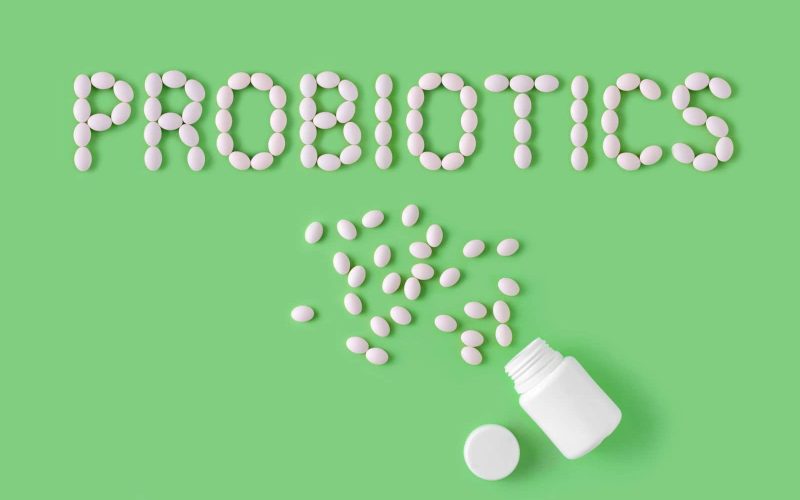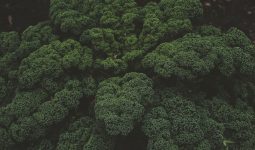Probiotics are also known as “healthy bacteria” or “beneficial bacteria”; they are live yeast and bacteria that promote health and support major functions of your body, most especially your digestive and immune systems.
Probiotics don’t cause diseases, rather they fight harmful bacteria and other microbes that cause diseases; besides, not all bacteria are harmful, unlike viruses.
Probiotics are present in the body and they are mostly located in your gut, they protect your gut and keep it healthy.
They line your digestive tract, they enhance the ability of the body to absorb nutrients from foods eaten and they help you fight off infections. It is estimated that our bodies have the same number of gut bacteria molecules as the cells of your body.
Over 2,000 bacteria are present on your skin and in your digestive system alone; there are also present in other parts of your body. They have been in your body since from birth; you were exposed to the bacteria when you were in the birth canal of your mother during delivery.
Scientists believe that this starts a chain of reactions inside the baby’s gastrointestinal (GI) tract and the baby’s GI tract begins to produce good bacteria.
These friendly bacteria are one of the most commonly researched natural remedies to gut problems. Your gut is also part of your immune system because it makes up 80% of your immune system.
The digestive system forms the largest part of the neurological system; it is called the “enteric nervous system” and it is situated in the gut.
This is why the digestive system is called the second brain; it has a huge impact on the functions of your brain and it regulates your mood your gut produces 95% of serotonin.
Gut problems and disorders have been linked to hormonal imbalance, thyroid problems, autism, joint pains, chronic fatigue syndrome, and psoriasis.
Our ancestors had lots of probiotics in their diet which came from organic foods grown in good soil and they also fermented their foods to prevent them from spoiling and this increased their intake of probiotics.
The story is not the same today, in fact, modern man is deficient in probiotics; this is caused by many factors like chlorination of our foods which kills these healthy bacteria, so-called purification of foods too also contribute to the absence of probiotics in our diet, some foods contain harmful antibiotics which kill probiotics and harm your body, refrigeration, and other agricultural practices also eliminate these beneficial bacteria from our foods.
One secret to long life and good digestive health is to increase your intake of probiotics.
It’s more than a century now when Elie Metchnikoff , a Russian scientist and Nobel Prize Winner created his theory that “health and senility can be delayed by manipulating the intestinal microbiome with host-friendly bacteria found in yogurt.”
It is important to note that probiotics are not a new idea or invention; many cultures throughout history have survived on fermented foods and cultured foods, this was the ancient way of preserving food for a long time before the invention of the refrigerator.
Modernization has made man forget the process of fermentation and these practices have been lost as foods are no longer preserved using this method.
This is the reason why lots of people are deficient in probiotics and have a lot of digestive issues these days.
Types of Probiotics in the Body
There are many types of healthy bacteria and each has a different benefit or a different function that it carries out in your body. There are two main groups of probiotics and they are mostly prescribed based on your needs.
Lactobacillus
This is the most common probiotic, it is found in yogurts with live culture and fermented foods. Different strains of bacteria in this group help treat digestive problems like diarrhea; they fight indigestion and they are also beneficial to people who have difficulty digesting lactose.
Bifidobacterium
This group of probiotic is also very effective against digestive disorders like irritable bowel syndrome and others; you can find it in organic dairy products.
Saccharomyces boulardii
This is a healthy yeast that can be classified as probiotics; it helps treat symptoms of digestive problems like diarrhea.
Some Beneficial Strains of probiotics
High-quality probiotics that give a lot of health benefits are:
- Saccharomyces boulardii
- Bifidobacterium bifidum
- Bacillus coagulans
- Bifidobacterium longum
- Bacillus subtilis
- Bifidobacterium breve
- Lactobacillus rhamnosus
- Bifidobacterium infantis
- Lactobacillus brevis
- Lactobacillus casei
- Lactobacillus bulgaricus
- Lactobacillus acidophilus
If you are taking them in the form of supplements, you have to take them in moderation because too much of it when taken rapidly causes diarrhea. They are very safe, and if at all, have very few side effects.
The Mechanism of Action of Probiotics
Health experts believe that the gut is a home to both harmful and beneficial bacteria but the reason we don’t feel the negative impact of these harmful microbes and pathogens because the probiotics are higher in population than the pathogens or harmful microbes.
The balance of these microorganisms in your gut is 85% good bacteria (probiotics) and 15% bad bacteria. Probiotics carry out its various functions in the body by maintaining this balance.
If the ratio or percentage is disrupted, this will lead to overgrowth or excess of a certain type of bacteria, fungi, or yeast; this affects the body in a negative way and causes a lot of damages, this condition is known as dysbiosis. This natural balance can be restored by increasing your intake of probiotic foods and you can also take the supplements.
Functions of Probiotics in the Body
Probiotics carry out a lot of functions in the body; some of them are:
They Prevent Inflammation and Boost Immunity
Probiotics boost immunity and their effects are tripled when combined with prebiotics (probiotics feed on prebiotics). When they are used together, they are called synbiotics. The root cause of many chronic diseases and health complications worldwide is chronic inflammation.
Probiotics fight this condition and boost the immune system and the general health of your body. Bifidobacteria, a common probiotic fights and protect you from flu, common cold, and other infections.
They bring down High Blood pressure
A large number of studies and reviews online show that probiotics can help hypertensive patients lower their high blood pressure.
It does this by improving your lipid profiles (this includes triglycerides and cholesterol), by preventing and reducing insulin resistance, by regulating the levels of renin (this is an enzyme and a protein secreted by the kidneys to reduce blood pressure), and by activation antioxidants.
They don’t give side effects and they are very effective in reducing blood pressure. If you have high blood pressure and you want to see the effects of these probiotics, consume probiotics made of multiple strains of healthy bacteria for at least 8 weeks or more.
This probiotic supplement should contain 100 billion or more of colony-forming units.
They Prevent and treat Antibiotic Resistance
Antibiotic-resistant is considered one of the greatest threat to global health. Overuse of prescription antibiotics and feeding of animals with these drugs are responsible for this.
Probiotics help replenish the dead population of probiotics; they rebuild your gut bacteria by replenishing it with varieties of friendly microbes, and they improve the effectiveness of antibiotics and prevent your gut bacteria from becoming resistant.
They Treat Diabetes
Regular intake of probiotic-rich foods cut down the risk of you developing diabetes. It improves insulin resistance and decreases autoimmune responses usually found in diabetic patients.
To bring down elevated levels of blood sugar, you can take synbiotics, (a combination of probiotics and prebiotics), and they also help you manage the symptoms of diabetes.
They Breakdown Kidney Stones
There are a number of species of Bifidobacterium and Lactobacillus probiotics help to break down oxalates, the major cause of kidney stones. These studies need to be carried out on humans though but it is not a bad idea to try this since they have no side effect and they can’t interfere with your treatments.
They Boost Skin Health
Probiotics are highly beneficial for the skin, especially in little children; they prevent pediatric atopic dermatitis in babies and also fight against infant eczema.
They fight inflammation of the skin by reducing antigen-specific skin inflammation, the strain of probiotic that can do this is the L. casei. Having healthy probiotics in your gut keeps skin diseases at bay and it makes your skin healthy.
They Improve Liver Disease (Non-Alcoholic Fatty Liver)
This disease affects millions of people around the globe; it is characterized by the buildup of fats in the liver, this leads to cirrhosis of the liver and sometimes it ends in liver failure or death of the patient.
Probiotics improve the life of patients with this disease.
They Boost the Digestive System
These friendly bacteria revamp and boost the health of your digestive system; they prevent gastrointestinal diseases, they treat and prevent indigestion by acting on the nerves that regulate the movement of the gastrointestinal tract.
They treat a lot of digestive problems like antibiotic-induced diarrhea, irritable bowel syndrome, infectious diarrhea (caused by harmful microbes and other forms of diarrhea like traveler’s diarrhea and acute diarrhea), and inflammatory bowel diseases like Crohn’s disease and ulcerative colitis.
They also reduce the severity and pain of irritable bowel syndrome, they eliminate harmful microbes like H. pylori which causes gastric and peptic ulcers. They treat pouchitis, this is a health complication that happens after the rectum and large intestines have been removed surgically.
They Prevent Cancer
Preliminary studies suggests that some strains of probiotics help slow down or stop the growth of cancers of the colorectal/colon and bladder.
Regular intake can prevent the formation of cancer in the first place, you can boost its effects by taking along with prebiotics.
These studies have shown evidence that probiotics have an anticarcinogenic effect but more research needs to be carried out on these before it can be concluded that probiotics prevent cancer. Those suffering from cancers should include quality probiotics in their meals every day.
They Aid Weight Loss
There are many studies being carried on this but the results are not obvious and most of them reported that body mass index and body weight were not reduced consistently.
Some years back, this was suggested to be included in weight loss diet, you can still try though but more studies are being carried out to know how to utilize probiotics for weight loss.
They protect you from Food Allergies
Infants and adults with a poor amount of probiotics in their gut are more prone to allergies than those who have healthy levels of these friendly bacteria. Infants with this condition are susceptible to developing allergies in the first two years of their lives.
They reduce the symptoms of food allergies by fighting chronic inflammation in the gut, and they also regulate the response of the immune system in both children and adults.
They Boost Dental Health
A review of a study conducted in 2009 showed that probiotics might be an effective new option for dental problems. Certain strains of probiotics were found to be effective at preventing cavities.
They Boost Mental Health
Your brain and your gut are closely related, they are made from the same matter; in fact, the gut is referred to as the “second brain” and this has been a major point of research since the discovery of the gut-brain connection. They fight inflammation and relieve the symptoms of anxiety by fighting inflammation along the gut-brain connection.
They are also helpful for autistic patients by relieving the symptoms of autism. It treats the huge numbers of digestive issues suffered by autistic individuals; studies have shown promising results that probiotics might also help correct the abnormal behaviors in autistic individuals too.
In 2016, a study was carried out using a boy with severe autism who was treated for digestive problems with probiotics. The boy showed spontaneous improvement on the ADOS scale.
Lots of studies are going on to see ways in which probiotics can be used to improve the core deficits of autism on brain connectivity and functions, and on language development and cognitive abilities.
Urinary Tract Infections
Urinary tract infection is usually caused by harmful bacteria that spread from the rectum to the vagina during cleansing after a bowel movement. This is common in women and probiotics are regarded as a powerful remedy for this infection.
It treats UTIs and prevents it from recurring, less common strains of probiotics are effective in treating this condition, this makes proper treatment with probiotics a bit complicated.
They Treat Severe Diseases in Babies
Well-designed probiotics can help treat neonatal sepsis and necrotizing enterocolitis, the two most dangerous diseases in newborn babies.
These conditions affect premature babies mostly and they are the most dangerous in babies with low birth weight and very low birth weight.
Studies have confirmed that regular intake of high-quality probiotics by a pregnant woman prevents this conditions in her baby.
The risk of the baby developing these conditions will be very low and the risk is cut drastically low when the baby is breastfed after birth and the mother is still taking the probiotics or the probiotics are added to the baby’s formula.
Use a probiotic formula that has multiple strains, this is the most effective in these conditions.
Rheumatoid Arthritis
There is a connection between poor gut health and autoimmune diseases like rheumatoid arthritis and natural health practitioners have long proposed probiotics as a treatment option for this disease.
They reduce inflammation and stop the progress of the disease. Other functions and importance of probiotics in the body are:
- They protect the mouth and prevent oral and dental problems like bad breath, tooth decay, and others.
- They fight skin problems like eczema
- They prevent and treat colds and allergies
- They protect the urinary system
- They treat and prevent vaginal infections and problems
- They help in the synthesis of vitamin K2, vitamin B12, and butyrate.
- They stimulate the secretion of regulatory T-cells and IgA
- They kill and eliminate bad microbes and pathogens from the body
- They help in the secretion of enzymes that kill harmful bacteria
Ways You Can Increase your Intake of Probiotics
Eat Lots of Sour Foods
Sour and fermented foods are storehouses of probiotics; sour and fermented foods contain both probiotics and certain types of healthy acids that boost the functions of these probiotics; examples of these acids are acetic acids and gluconic acids.
In some cases, they even function like prebiotics. There are lots of fermented and sour foods available today, they are apple cider vinegar, take 6 tablespoons daily, Kvass, kimchi, and sauerkraut are fermented vegetables with a high content of probiotics.
Increase your Intake of Probiotic-Rich Foods
Consume lots of foods rich in probiotics daily to replenish your friendly flora and boost your health. some of these foods rich in probiotics are high-quality milk from organic goat raised in a natural way (left to roam about and eat varieties of green grasses), kombucha, kefir, and coconut kefir.
Kefir can be added to your morning smoothies, or you take organic probiotic yogurt every morning. At the end of this article, I will give a list of some probiotic-rich foods.
Feed the probiotics in your Gut
Probiotics are living organisms and they feed too; feeding them naturally boosts their growth and increases their populations. Prebiotics are what probiotics feed on; they serve as fuel for this beneficial bacteria and fermentable fiber are rich sources of prebiotics or food for probiotics.
Try and increase your intake of high-quality fiber in your diet, doing this will automatically boost the population of probiotics in your gut.
Some foods that are rich in prebiotics are flaxseeds and chia seeds; add these foods to your meals daily, sweet potatoes, vegetables, and fruits are rich in high-quality fiber.
Take Quality Probiotic Supplements
Intake of quality probiotic supplements is a great way to increase the population of probiotics in your gut. There are a lot of factors you need to consider when purchasing probiotic supplements.
There are lots of strains of probiotics and their actions or functions can be completely different from one another. When you want to use probiotics to treat a specific health condition, it is advisable to do research to enable you to select the right one for that condition or you can choose to consume a wide range of probiotics.
Read probiotic labels before buying them, this will tell you the genus, species, and strain of the product; they are usually in the form of capsules and the colony forming units at the time it was manufactured is also stated.
Heat kills probiotics, so store them properly. Go for quality probiotics, go for probiotics that have a number of colony forming units, and choose those with CFS count of 15 billion to a hundred billion. The higher the number, the more effective the probiotic is.
You should also go for probiotics that has many different varieties of strains; there are some probiotic supplements that contain up to 30 different strain, but this is not important if you are looking for a particular strain for its own unique benefits.
Some cultures or formulas are able to make it to the gut and colonize while some cannot; this is known as survivability. Strains with good survivability are Saccharomyces boulardii, Bacillus coagulans, Lactobacillus rhamnosus, and Bacillus subtilis.
You should also consider the stability of the products when buying probiotics; some need to be kept in a cold environment for their potency to be preserved, others don’t need this.
Look at the date of production, the fresher the better. Avoid probiotics that contain sugar, sugar destroys them, rather go for probiotics with prebiotics, that type contains healthy fiber and plant starches which serves as foods for the probiotics. this type is usually called synbiotics.
Killers of probiotics in our Bodies
There are many factors that lead to the death of probiotics in our bodies; this includes environmental and dietary factors, and some of them are:
- Over-processing and purification of foods
- Excessive use of antibiotics
- Poor sleep pattern
- Sugar and artificial sweeteners
- Smoking
- Genetically modified foods
- Indiscriminate use of both prescription and non-prescription drugs
- Inflammation
- Alcohol (red wine is exempted)
- Emotional stress
- Sedentary lifestyle and lack of exercise
The above factors cause massive destruction of probiotics in your gut.
Rich Natural Sources of probiotics
Raw Dairy
Raw milk of farm animals raised in a natural and organic way are rich sources of probiotics; this includes farm animals like sheep, cows, and goats. A2 aged cheeses are also rich sources of probiotics.
Pasteurization and other methods of sanitation kill these beneficial microbes.
Tempeh
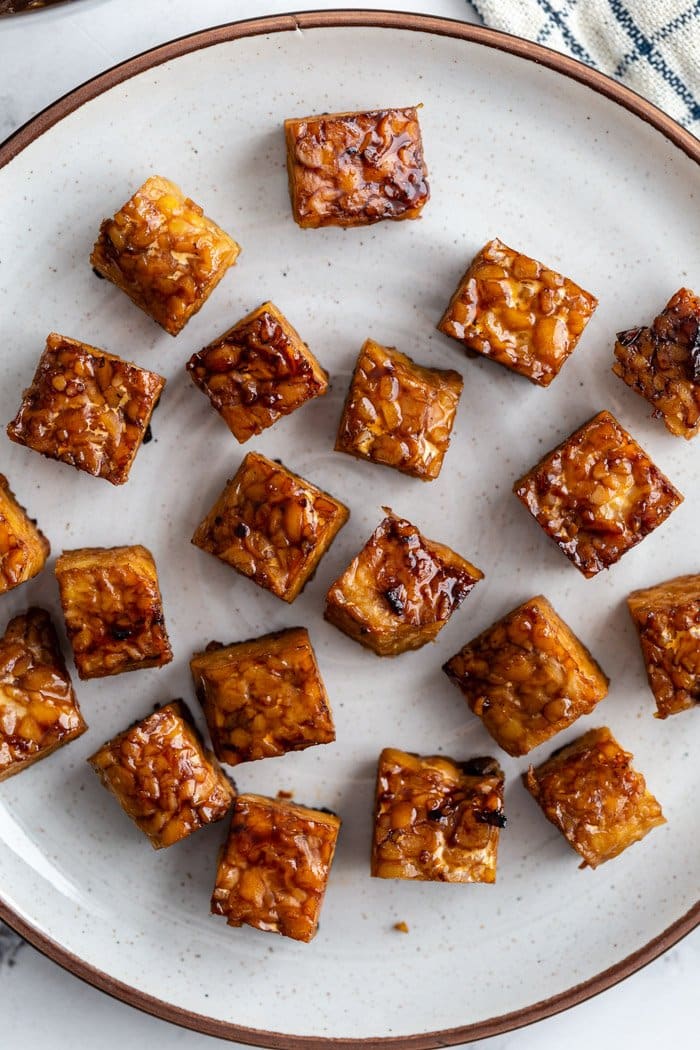
This rich probiotic food is made from fermented soybeans; it is firm and has a nutty or earthy flavor similar to that of a mushroom. It is a high-protein substitute for meat and it boosts nutrition.
The fermentation process breaks down the phytic acids in soybeans which cause impairment in the absorption of minerals like zinc and iron. This increases the absorbability of these minerals.
It also contains bacteria that can produce vitamin B12, a vitamin lacking in soybeans and this makes this food a great help to vegetarian and all those who want to boost their general health.
Kefir
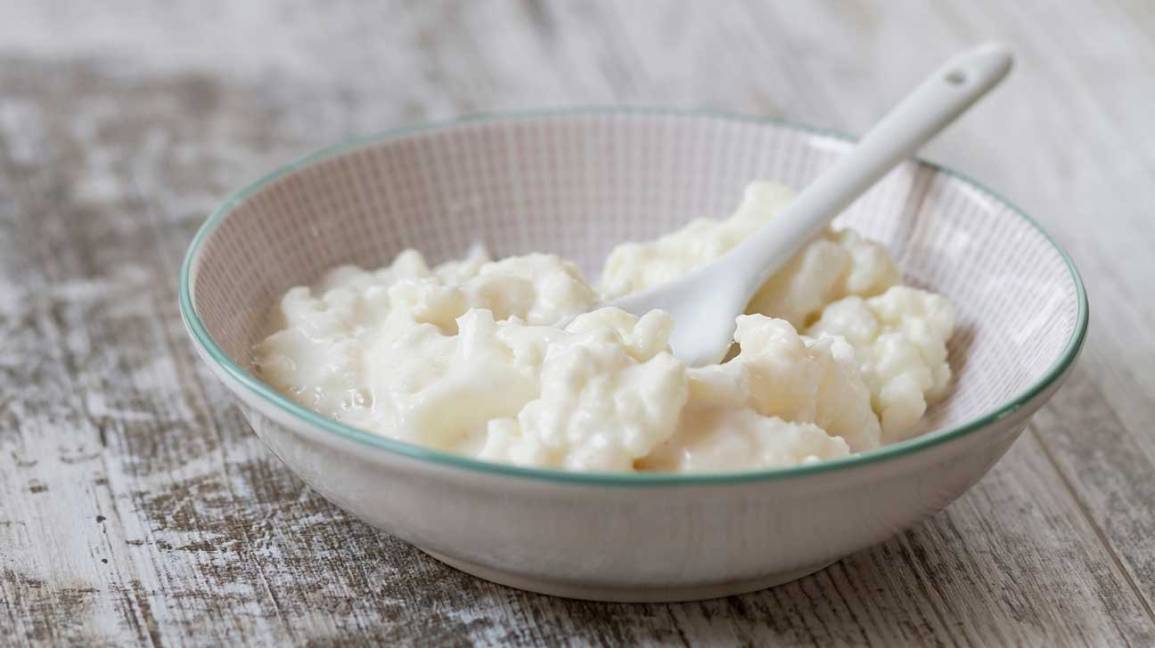
This probiotic food is similar to yogurt, it is made by combining fermented kefir grains and milk. Bacteria in milk and yeasts in the kefir carry out the process of fermentation and they also break down the sugar (lactose) present in milk. This is why people with lactose intolerance can take kefir.
It has a tart flavor and it is slightly acidic; it is also believed to contain close to 34 strains of probiotics, and it is higher in probiotics than yogurt.
Gherkins
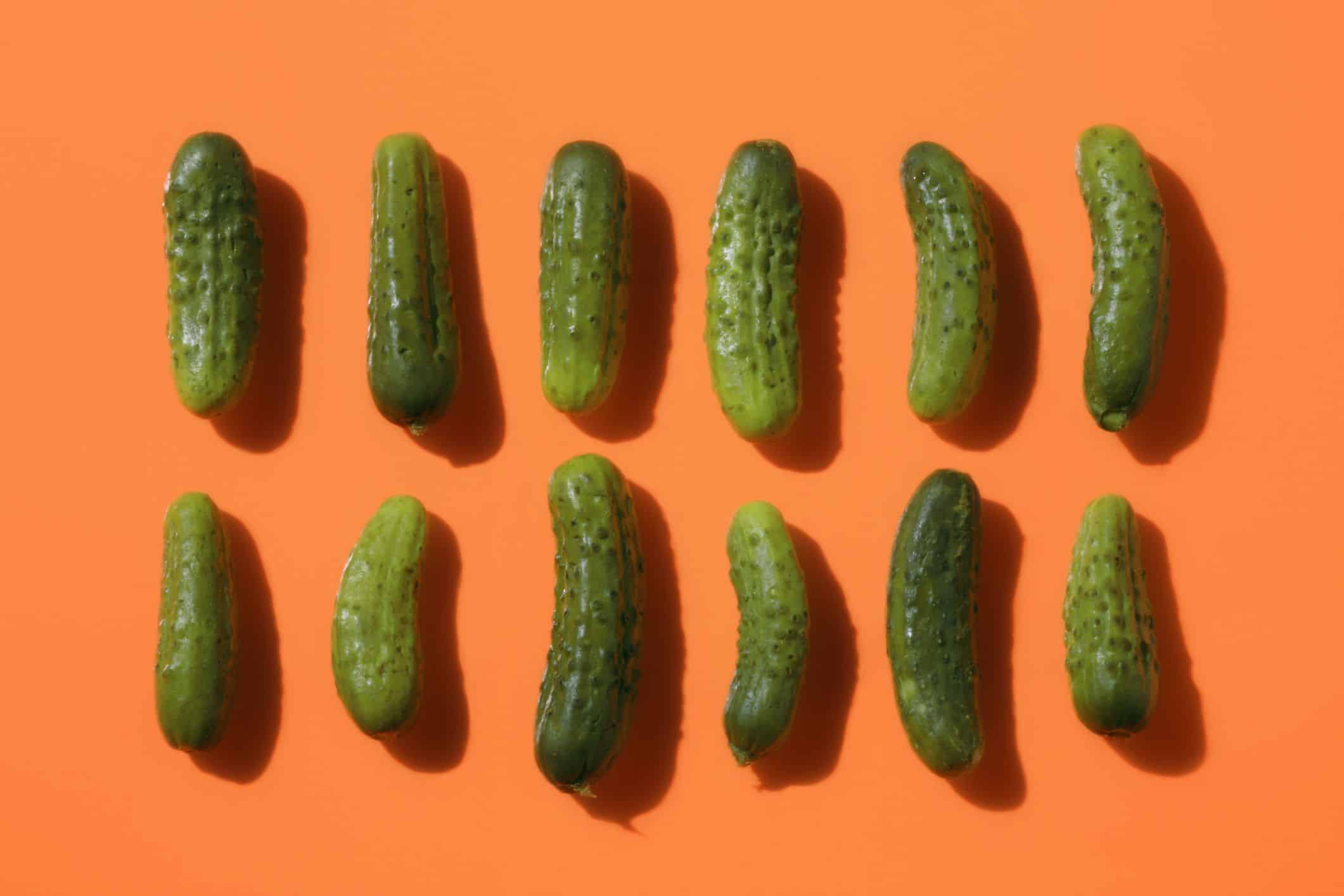
They are also known as pickles; they are made from cucumbers that are pickled in a solution of water and salt. They are left to ferment in this solution for some time and they use their natural lactic bacteria to carry on the process of fermentation.
They have a sour taste, they have low calories and they are rich in vitamin K, a vital nutrient which is essential for blood clotting. Don’t make pickles with vinegar because it kills the probiotics.
Kombucha
This is an effervescent (a liquid that gives off bubbles) gotten from the fermentation of black tea by a symbiotic colony of bacteria and yeast known as SCOBY.
This probiotic food has been around for over two thousand years and it is believed to originate in the year 212 BC. It carries out lots of important functions in the body like detoxification of the liver, digestive support, and boosting of the immune system.
Buttermilk

Traditional buttermilk is a rich source of probiotics is a great source of probiotics; it is made by fermenting a wide range of organic dairy drinks.
The traditional buttermilk is more effective and contains more probiotics than the cultured ones. It is also referred to as “grandma’s probiotics”. It is rich in essential vitamin and minerals and very low in calories and fats.
Sauerkraut
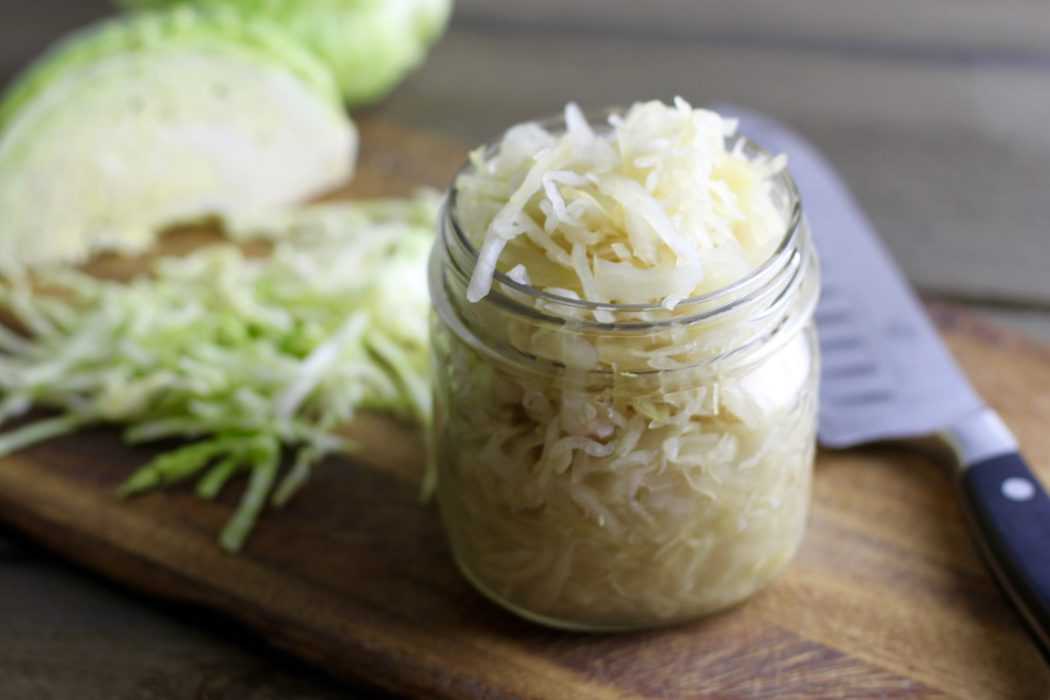
This is made by fermenting cabbage and other vegetables; this is a good source of probiotics but it does not contain varieties of probiotic strains.
It is a storehouse of lactobacillus and other natural lactic acid bacteria, it is rich in organic acids which are responsible for its sour taste and this boosts the growth of good bacteria in your gut. It is also high in digestive enzymes and vitamin C.
Miso
This probiotic food is a common remedy in Japanese Traditional Medicine; it regulates the digestive system, and it has been used for more than 2,500 years. It is made by fermenting barley, adding soya beans and rice.
The fermentation process can take a few days to a couple of years and it gives a dark brown, white, or red paste that has a buttery texture. This probiotic food is taken as soups and its preparation is very easy.
You simply make miso soup by dissolving one tablespoon of miso inside a pot of water containing seaweeds and other ingredients of your choice. Majority of the people in Japan start their day with a warm bowl of miso soup, this energizes the body.
Cheese

Not all cheeses are rich in probiotics even though all of them are gotten through fermentation. Cheeses with active cultures and rich in probiotics are cheddar, Gouda, cottage cheese, and mozzarella. They are very rich in vital nutrients like proteins, selenium, phosphorous, calcium and vitamin B12.
Kimchi
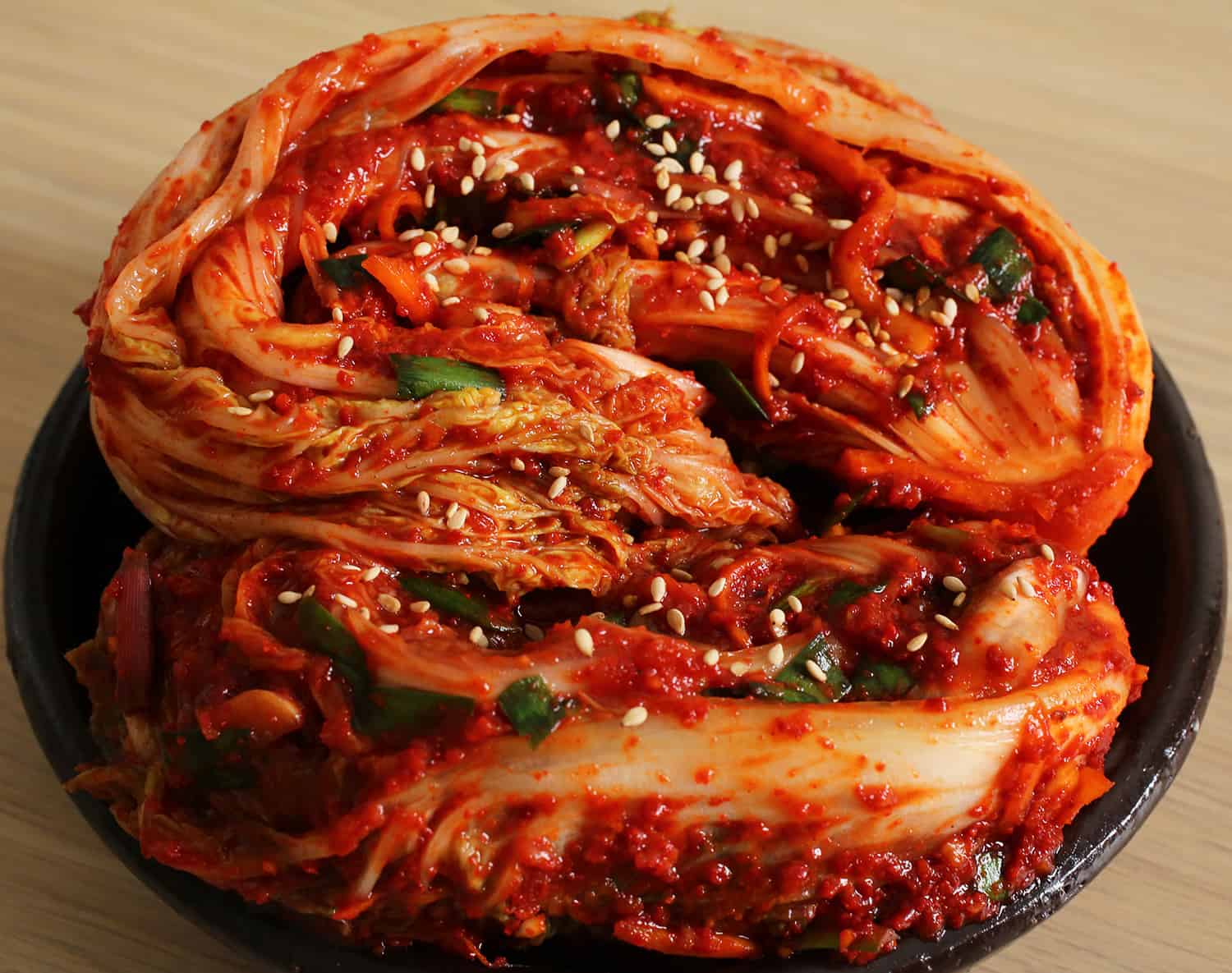
This probiotic food is made in the same way as sauerkraut; it is the Korean way of culturing vegetables. It is produced by mixing Chinese cabbage and spices and other food ingredients like carrots, sea salt, radishes, red pepper flakes, ginger, garlic, and onions. This mixture is then set aside for a period of three to 14 days three to fourteen days.
Kvass
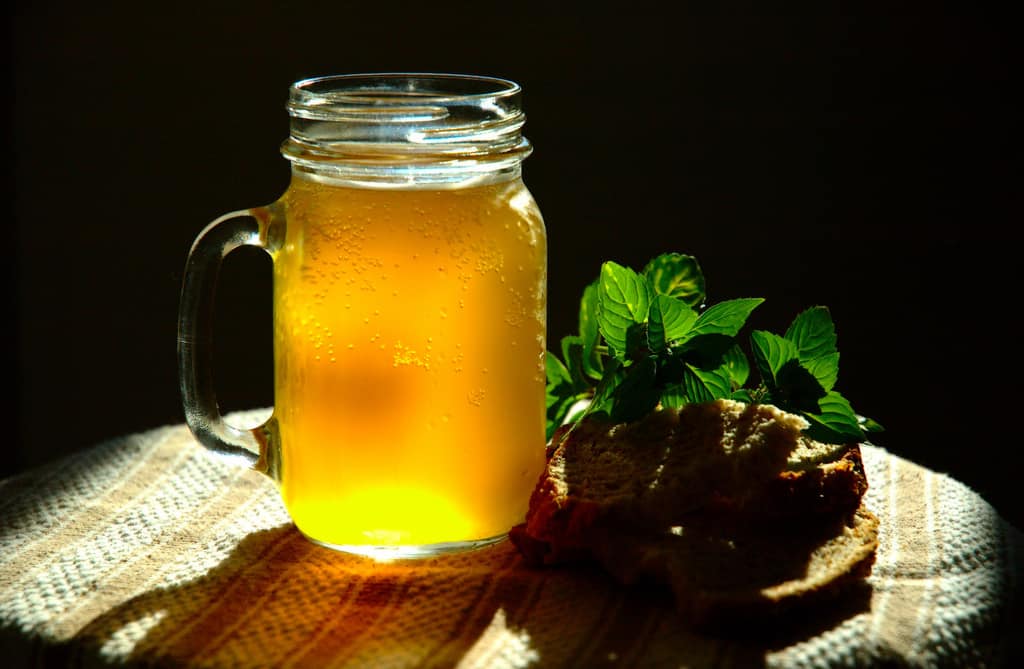
This is a common probiotic food in Europe, it is made by fermenting beverages, it has been in existence since ancient times and it is produced by fermenting rye or barley. It has a mild flavor and it can also be created using fruits, carrots, beets, and other root vegetables.
Coconut Kefir
This rich probiotic food is made by fermenting coconut water gotten from young coconuts with the grains of kefir. It has the same level of probiotics as the traditional kefir fermented with dairy and it has lots of strains that improve your health. It can be added to lime juice, water, and stevia.
Yogurt
This is the most popular probiotic food in our modern times, but this type of yogurt can only rank high in probiotics when they come from organic and grass-fed animals.
Natto
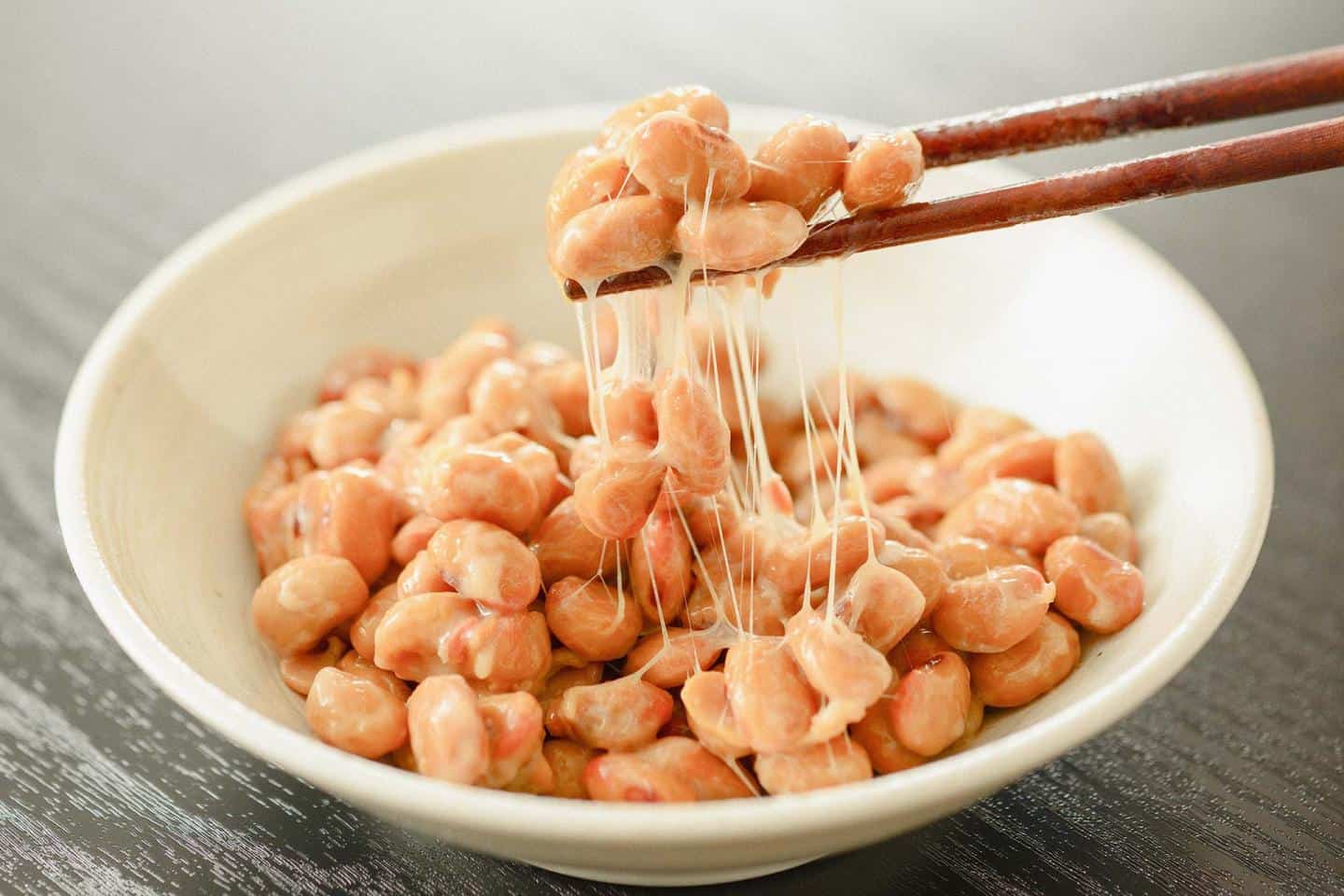
This is popular in the Asian region made with fermented soybeans. It is rich in the powerful probiotic Bacillus subtilis and it has a lot of powerful effect on your health like supporting cardiovascular health, fortifying the immune system, and enhancing the digestion of foods rich in vitamin K2.
It is also rich in vitamin B12 which is usually lacking in vegan meals and it has one of the highest plant proteins; it contains 31 grams of proteins a cup.
Sources of Prebiotics
Prebiotics are what probiotics feed on; they encourage the growth and activities of probiotics and boost their populations. These are the support system of probiotics but yet they are the most under-appreciated nutrient.
They make probiotics more effective and boost their functions. They are mainly non-digestible fiber. They are also known as a type of dietary fiber called “oligosaccharides.” Prebiotics, when taken alongside probiotics, opens the door to optimum health and longevity.
Rich sources of prebiotics are raw garlic, unripe bananas, raw asparagus, raw dandelion greens, raw onions, raw leeks, raw chicory root, acacia gum, raw jicama, and others. Incorporate these foods regularly in your diet to boost the effects of probiotics and improve your general health.




